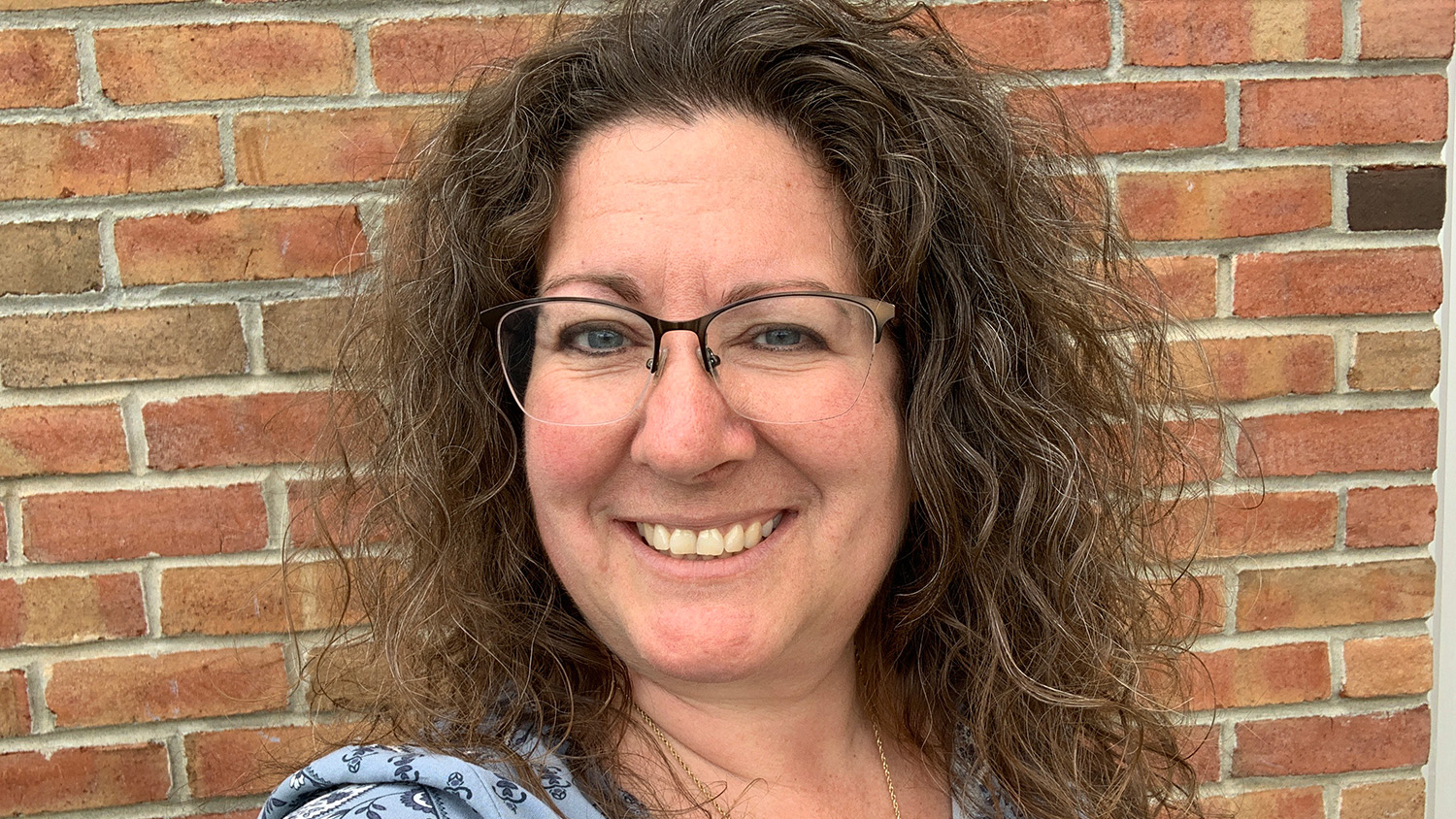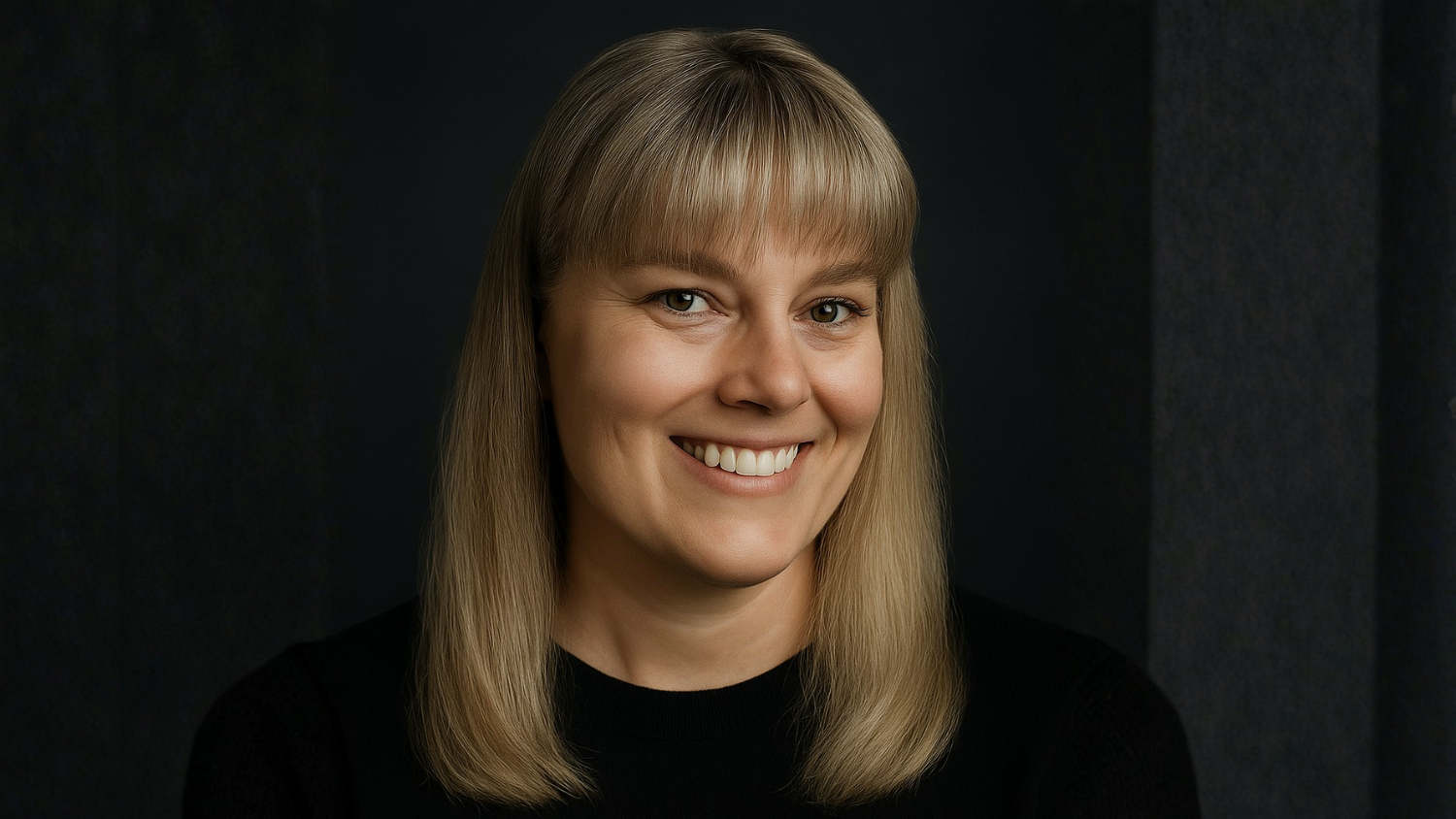Michelle Case can see the Catskill Mountains from her kitchen window while listening to a class lecture on ecology, evolution and biodiversity.
Case lives in a rural town 20 miles south of Albany, New York. She is a distance education undergraduate student in agricultural science in the College of Agriculture and Life Sciences.
One of two students in the program’s first online cohort, she wants to be a high school agricultural teacher.
“I didn’t know what I wanted to be until I turned 45,” she says.
However, Case has an agricultural background. “I’m a third-generation FFA student, and my children are fourth-generation. So I’ve been involved with agriculture my whole life. We have a small family farm. We have chickens, turkeys and pigs, and we’ve had cows in the past.”
But marriage and motherhood after high school didn’t leave much time for continuing her education.
“My job was to raise my two kids. They grew up and moved out of the house. And then I asked myself, ‘What do I do now?’”
Thoughts of returning to school percolated for years, even while she worked as a special education paraprofessional at the local public high school.
When COVID restrictions closed the high school, she enrolled at the local community college and earned an associate’s degree in applied science.
But Case’s desire to become an agricultural teacher meant she needed more education and a master’s degree to teach in New York.
“Finding an online bachelor’s program felt almost impossible.”
Balancing family life and a full-time position at the high school (once in-person attendance resumed) required flexibility. She is her family’s sole income earner, so quitting her job to pursue education wasn’t an option.
“I needed something that was online,” Case says. “Finding an online bachelor’s program felt almost impossible.”
Fortunately, she found North Carolina State University’s table during the 2021 National FFA Convention and learned about the agricultural science online program. She was accepted in the summer of 2022.
Second Motherhood
For Case, going to college is like having an infant again. “You learn that you can live on a very minimal amount of sleep, and you have to multitask,” she says. “You have to think about your assignments 24/7, and this past semester I took five classes.”
She manages a heavy workload of classes and full-time work. “Sleep is irrelevant right now, but it will be OK. In the end, it’ll be worth it.” Case plans to graduate in the summer of 2024.
Unaccustomed to the rigorous pace of her program, she learned how to slow down and start from the beginning. “When I read an assignment, and I don’t even know what that means, I tell myself not to panic. Go through the lessons, and it will make sense. You will understand it at the end.”
What has stood out most to Case is the support of her family, especially her children.
“When I’m tired and spent and feel like I can’t do this anymore, they tell me, ‘No, Mom. You can do this.’ My husband will say, ‘I got the dishes. You need to do your homework.’”
Balancing Act
Case’s biggest challenge is balancing her many work responsibilities, pursuing a degree and managing relationships.
“I make it a point not to miss family time,” Case says, who also has a 1-month-old grandson. “It’s okay if the house isn’t clean. It’s okay if the dishes aren’t done. But it’s not okay to miss those big moments for your kids, spouse or friends.”
“Being a full-time worker and distance education student can be overwhelming. I appreciate the mental health days the university offers.”
Organization and strategic time management improve her work-life balance. She studies during her lunch breaks and listens to lectures in her car. She’ll even listen to lectures while folding clothes or washing the dishes.
Case was happy her professors observed the university’s wellness day on Feb. 16.
“It gave me a chance to catch my breath. Being a full-time worker and distance education student can be overwhelming. I appreciate the mental health days the university offers.”
Staying Connected
There are few opportunities to help distance education students feel like a part of the Wolfpack family. Case’s 10-hour distance prohibits her from taking advantage of campus resources such as tutoring.
“Sometimes distance education students are forgotten about,” she says. She often has to remind professors that she lives out of state and needs to meet with them virtually. Sometimes the lag in communication with her professors affects her academic experience. She takes the initiative to get professors on a Zoom call versus emailing back and forth.
“We’re rooting for you.”
Case appreciates faculty who make an extra effort to contact distance students. One professor mailed her a sticker that said, “We’re rooting for you.”
“Receiving the sticker made a lasting impression on me. I felt heard and seen. It reduced my feelings of isolation,” Case says.
Inspiring Others
Case’s drive to complete her education is motivating her friends to pursue their associate’s degrees.
She also encourages other mothers who want to achieve their educational goals to reach out for help when they run into obstacles. “Just because you’re an adult doesn’t mean you cannot seek help. Get support from family, friends and colleagues. Be proud and open about it.”
The high school students Case works with are her inspiration. “I want to be an agricultural (and technology) teacher so I can teach kids that they can pursue the trade world. They still have a place in society if they don’t attend college. I want to equip them with hands-on experiences so they can go out into the world and support themselves and their families.”
This post was originally published in College of Agriculture and Life Sciences News.
- Categories:



